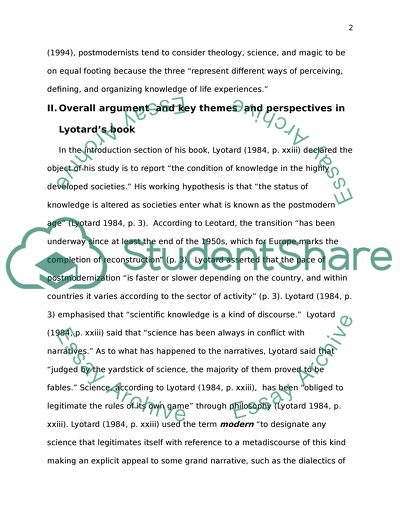Cite this document
(“Critical review of Lyotards The Post Modern Condition: On the Essay”, n.d.)
Critical review of Lyotards The Post Modern Condition: On the Essay. Retrieved from https://studentshare.org/sociology/1466129-critical-review-of-lyotards-the-post-modern-condition-on-the-post-modernism-of-jean-francois-lyotard
Critical review of Lyotards The Post Modern Condition: On the Essay. Retrieved from https://studentshare.org/sociology/1466129-critical-review-of-lyotards-the-post-modern-condition-on-the-post-modernism-of-jean-francois-lyotard
(Critical Review of Lyotards The Post Modern Condition: On the Essay)
Critical Review of Lyotards The Post Modern Condition: On the Essay. https://studentshare.org/sociology/1466129-critical-review-of-lyotards-the-post-modern-condition-on-the-post-modernism-of-jean-francois-lyotard.
Critical Review of Lyotards The Post Modern Condition: On the Essay. https://studentshare.org/sociology/1466129-critical-review-of-lyotards-the-post-modern-condition-on-the-post-modernism-of-jean-francois-lyotard.
“Critical Review of Lyotards The Post Modern Condition: On the Essay”, n.d. https://studentshare.org/sociology/1466129-critical-review-of-lyotards-the-post-modern-condition-on-the-post-modernism-of-jean-francois-lyotard.


